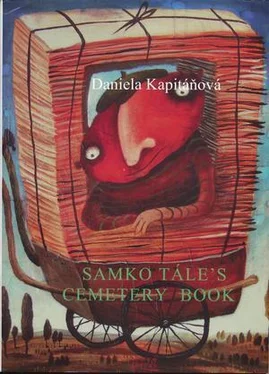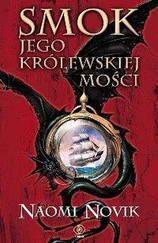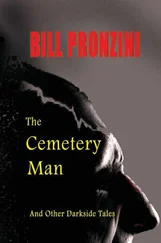When my Dad said things like that I was always really scared that the High Ups might find out and they might ask me why I hadn’t reported my Dad for saying things like that about them.
That’s why I was happier being with Grandaddy because he never said things like that, and also because he had a Notebook regarding the Local Party Cell which was a very important Notebook.
He used to greet people by saying ‘Proletarian greetings!’ and he used to subscribe to Party Life .
Party Life was a newspaper that nobody used to read, but Grandaddy was scared to cancel it because he said the High Ups were keeping an eye on it and anyone who cancelled would get into big trouble. That’s why he never cancelled.
Grandmummy used Party Life to wrap up Allan Wilton and to fire up the stove, because they had a stove. Because in the old days you couldn’t have central heating just like that. Nowadays, anyone can have central heating just like that.
My grandparents had two stoves because they had two rooms, except that the third one wasn’t a room. It was the larder which had the table with the marble top where Uncle Otto grew his mushrooms. They didn’t need a stove there, because mushrooms don’t like heat. What mushrooms like is humidity. And that’s why sometimes the room really stank from time to time because some of the mushrooms that Uncle Otto grew were very smelly.
The Party Life newspaper always had a humorous cartoon on the last page. Usually the cartoons were about Americans. They were very serious and very instructive. Like, for example, this cartoon that showed an American soldier who had put a bomb inside some tinned food and gave the tin to a little black girl saying:
‘Here you are, have some of our food aid.’
Meaning it was their food aid.
And the way you could tell that he was an American soldier was due to the writing on his hat. It was very instructive as well as very humorous.
But mainly it was very instructive.
Karol Gunár (PhD Social Sciences) was also very humorous as well as very modest, and the way you could tell was that when he clinked glasses he always used to say:
‘Proletarians of the world, imbibe!’
That was humorous and everyone could see that Karol Gunár (PhD Social Sciences) was very modest and that he wasn’t stuck up at all, even though he was High Up. And then everyone had a good laugh, because it was very humorous.
As well as very modest.
In addition to that, he used to wear a black fur hat that he called a Persian, just like the one the First Working Class President Klement Gottwald used to wear. And he used to say that he was going to be the Second Working Class President because they wore the same kind of hat and had the same initial letters. You get initial letters when a name starts with a first letter.
My initial letters are S.T.
Karol Gunár’s (PhD Social Sciences) initial letters were K.G. Just like Klement Gottwald’s.
Darinka Gunárová’s initial letters were D.G. Later they became D.M. And now they are D.Q.
I’ve got her in my Surnames Notebook under all these initial letters. But in my Christian Names Notebook I’ve got her down only under D .
Yesterday I saw Darinka Gunárová outside the Cultural Centre. She was wearing a skirt that was so short that there was room for another skirt. The skirt she was wearing was black. It was very short. That’s what the skirt Darinka Gunárová was wearing was like.
Once there was this woman in Komárno whose name was Veronika Osladičová and she used to wear skirts that were so short that every time she bent over it was a total disaster. But the reason she wore skirts like that was because she wanted to be a provocation, because she was that sort of woman. You know what I mean. A woman of sleazy virtue. She used to ride a bicycle and offer to do sexual things with men for money.
She offered that to me, too.
Once I met her by the Statue of the Sailor, and this is what she said:
‘Would you like me to warm you up, Samko?’
But I told her all the swearing words that I could think of. How dare that woman Veronika Osladičová say things like that to me? I’m no retard and I knew what she was up to. What she was up to was doing sexual things for money, but how dare she say things like that to me, like offering to warm me up? I don’t need anyone to warm me up, because I’ve got a proper padded coat and I wear thermal underwear as well as padded shoes.
So I kept swearing at her until she went away.
Later this Greek man came to live in Komárno and he fell in love with Veronika Osladičová because he was the son of Greek communist fighters and he was going to marry her because he didn’t know about her.
His name was Michalis Demetropullossis.
People didn’t know what to do about him not knowing and wanting to marry her because he didn’t know that people despised her. Especially women. So people decided to tell him, to make sure that he saw the light.
At first Michalis Demetropullossis didn’t believe them and wanted to beat them up but then people said he should look at the kinds of skirts she wore, and what a total disaster it was when she bent over. And then Michalis Demetropullossis had to admit they were right and he got very unhappy and moved away from Komárno.
Veronika Osladičová was unhappy too, but she didn’t move away.
So there was a happy ending and people were pleased that they had made him see the light and that it all turned out right in the end.
I was pleased, too.
Anyway.
That’s why I was really surprised to see Darinka Gunárová wearing the same kind of skirt, and I didn’t know what was what and why and how.
I don’t normally get surprised very often because I usually know what’s what and why and how and when I say that something will happen then things almost always turn out that way. For example, when I say:
‘You’ll see.’
Then things often turn out exactly like I said.
Like with that nasty Borka, the raving queer. Once he tried to put his arm round my shoulder but I wouldn’t let him because he’s got a bull’s-eye tattooed around that place down there, you know what I mean, so I told him that he would end up in jail, and he did, because I told him so.
Afterwards I told everyone that I had told him so and that I always knew that nasty Borka would end up in jail.
Margita is another one who knows in advance how things will turn out and when they do, she always says:
‘You see, I told you so and how right I was!’
She is almost always right regarding having told us so, for example she said that Ivana shouldn’t rent to Alf Névéry because it wasn’t going to end well. And she said that Czechoslovakia would be over soon, because otherwise things wouldn’t end well. And afterwards she said she had told us so and how right she was.
Margita is very proud of having told us so.
Old Gusto Rúhe also says things in advance, but he doesn’t care if they turn out the way he said, because he doesn’t even remember what he said a minute ago, because he’s old and he’s an alcoholic and his lower lip hangs down to his chin and he’s disgusting due to that.
Once I went to see him regarding his fortune-telling that said ‘Will write the Cemetery Book. Boy,’ because I wanted to know what he meant by it but he refused to tell my fortune again and said he had already told my fortune once, even though he couldn’t remember what it was. So I told him what his fortune-telling was regarding my fortune and old Gusto Rúhe just laughed and said, oh well, in that case it must be true, and asked me to get him another shot of spirits or a beer, so I got him a beer because that’s cheaper.
Everyone in Komárno always gets him alcoholic drinks, because nobody wants to have a spell put on them like Erik Rak, which goes without saying.
Читать дальше









